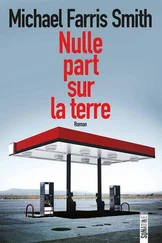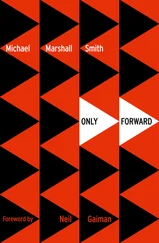Berthea had no time to reflect on the fact that she had saved her brother’s life. She sat fretting outside the ward where the doctors first assessed and then stabilised his condition, and when a nurse came out and whispered to her, ‘He’s coming round just fine - a few little burns on his hand but nothing much else,’ Berthea wept with relief. Not long after, she was ushered into the ward to stand at his bedside and find him looking at her with an expression of slight puzzlement.
‘What happened?’ Berthea asked. It was a trite thing to say to one who had just returned from the dead, and an insensitive thing too, even if not quite as tactless, perhaps, as asking, ‘What on earth did you do?’ - which is, of course, what she meant.
‘The Morris’s battery must have been faulty,’ said Terence. ‘I was charging it and I think that it exploded, or something like that.’ He waved a hand in the air to demonstrate the vagaries of car batteries.
Berthea frowned. ‘I didn’t know you had a battery charger,’ she said.
This remark was greeted by another expression of puzzlement from Terence. ‘Battery charger . . . ?’ He did not complete his sentence: Berthea was staring at him with a look that he knew well, a look made up of a mixture of incredulity and irritation. She began to say something, but thought better of it; a reunion with a brother saved from death was hardly the time to comment on a lack of technical understanding. There would be time for that later on. Or perhaps not; he would not change. All she could hope was that the divinity that hedges about those whose concerns run to sacred dance and Beings of Light would somehow be kind to him and protect him from the worst dangers of this world. And lightning, she reflected, tended not to strike in the same place twice. Could one say that same thing, though, of electricity? Somehow she thought not.
‘The important thing,’ Berthea muttered, ‘is that you did not die.’
Terence thought about this for a moment. ‘But I did,’ he said. ‘I died. The ambulance man told the doctor that my heart had stopped when they picked me up. And I saw them trying to start it in the ambulance with that pad thing. A battery charger perhaps.’
Berthea looked doubtful. ‘You saw that? But your eyes were quite closed, Terence. I was there, remember? I was in the ambulance with you.’
Terence nodded. ‘Yes, I saw you. I saw you sitting . . .’ He hesitated for a moment as he clarified his recollection. ‘You were sitting at the back, at my left side. You were holding a handkerchief in your hand and twisting it round and round. I saw you. I also saw you take my hand and look at the blood that was on it. Here, you see, where the bandage is.’
Berthea said nothing. She had the handkerchief in her pocket, and she remembered that she had twisted it so tightly that the fabric had torn.
‘You see,’ Terence continued, ‘I had died and I was hovering - that’s the only word for it - hovering at the top of the ambulance, looking down. I saw everything - you and the ambulance man and my own body lying there. It was very clear.
‘And then I was called away for a few minutes. I was led through a tunnel of some sort, a tunnel that had light at the end. Very bright, lovely light. And there were people there - very gentle people - who took my hand and said that I was forgiven. They said that they understood and I was not to worry about anything. And the AA was there too - some AA men in their uniforms, but with a light behind them, shining. They said I was not to worry about the Morris - they were very kind.’
Berthea could not contain her surprise. ‘AA men?’
‘Yes,’ said Terence. ‘They were not the usual AA men who come to help me with the car in Cheltenham. I did not know who these ones were. But one of them said, “Don’t imagine that there are no AA men in heaven. We’re here too. We’re ready.”
‘And then somebody came to my side and said to me, “It is not your time yet; you must go back. There is work for you to do.”’ Terence paused and looked at his sister. ‘Do you believe me, Berthy? Or do you think I’m making all this up?’
Berthea thought for a moment. She had read of near-death experiences and knew their general shape. People who had died - at least in the sense of their heart having stopped - upon recovery sometimes reported going through a tunnel and being ushered into the presence of light. They were sincere in these accounts, and often withheld them from others because they feared ridicule. She had put all this down to the last flickerings of oxygen-deprived consciousness, although the common features of these experiences were puzzling; if all this was entirely subjective, then surely accounts of these experiences would differ widely? Of course, Terence had introduced precisely such a subjective factor: AA men. That was ludicrous really, unless the AA men were symbolic of something - of care and attention and kindness to those in need. And why should they not be such symbols? In the iconography of European painting it was St Christopher who performed such a role; in the iconography of a society in which saints and their doings were becoming a distant memory, meaningless to so many, perhaps it was appropriate that AA men should fulfil the role saints had previously had.
She looked at Terence. ‘Oh, Terence,’ she began, but did not finish her sentence. Terence’s eyes had closed.
‘Eh?’ he muttered sleepily. ‘Eh, eh?’
She took his hand and stroked it; his frail, foolish, human hand. He was still talking about the AA; dear Terence, dear constantly searching but never finding Terence.
47. Your Shoes, Your Sad Shoes
As William began to make his way back to Corduroy Mansions, he became aware that Freddie de la Hay was trying to tell him something. The dog, who had been trotting happily at his side, circled round and sat down pointedly in front of him, all the while looking up with an expression that seemed to be a mixture of concern and anticipation. It occurred to William that Freddie merely wanted to prolong his walk, which was perfectly understandable: just as a walker might wish to draw out the pleasure of a stroll in bucolic surroundings, so might a dog wish to put off the moment of going back inside. Outside was a world of fascinating smells - a whole map, a palimpsest of the comings and goings of people, of other dogs, of cats, even the trace here and there of a wily urban fox; how could a dog be indifferent to all that? Inside, by contrast, was very much the same thing all the time and quickly exhausted from the olfactory point of view. That must be it: Freddie de la Hay was simply not ready to come in.
‘More walks?’ enquired William. ‘Is that it, Freddie?’
Freddie de la Hay stared at his new owner, his head moving slightly in what William thought might be a shaking motion; but surely no dog would shake his head to convey disagreement? I shall not be anthropomorphic, thought William; I am not going to imagine that this dog understands English.
He bent down to get closer. ‘What is it, Freddie? I can’t spend all my time taking you for walks, much as I’d like to. You do know that, don’t you, my boy?’
Freddie de la Hay stared into William’s eyes. Very brown, thought William, you have very brown, liquid eyes. And what lies behind them? What emotions? What canine thoughts?
Freddie answered the question with a whine. It was not a large sound, just a whimper really. And then, glancing quickly at William, the dog stood up and took the bag containing the Belgian Shoes in his jaws. Carrying the bag jauntily, he moved to William’s side, ready to continue the journey back to the flat.
William chuckled. ‘Oh, I see. That’s what you want. Thanks, Freddie.’
Читать дальше










